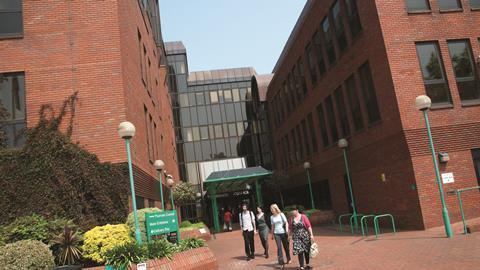Does a local authority have statutory power (under section 222 of the Local Government Act 1972) to prosecute commercially on behalf of national public bodies? And in any event, does a local authority have a freestanding common law power to prosecute in the manner of any individual? No in both cases, according to the Court of Appeal (the lord chief justice and justices Carr and Gilbart) on 28 April 2017 in R v AB and others [2017] EWCA Crim 534.
Background
The case concerned Thurrock Council (and its fraud investigation department – FID). It brought a prosecution against the appellants on behalf of the Legal Aid Agency (LAA) for conspiracy to defraud the LAA and perverting the course of justice. This was through the submission of claims for payment in respect of work which a solicitors’ practice in London had not performed.
As the court noted, the FID is a counter-fraud and criminal investigation service, responsible for the prevention, detection and deterrence of economic crime committed against the public purse. The evidence before the court from the LAA and the council was that the police would not take on the case.
Section 222 empowers a local authority only to prosecute in the specific interests of its own inhabitants, even if broad policy considerations can be taken into account
The council and the LAA entered into an agreement which (as the court indicated) ‘allowed the LAA to use the council’s specialist investigative resources to investigate allegations of fraud and corruption taking prosecution action (where necessary) against offenders’. The agreement would also allow the LAA to use the council to ‘investigate, restrain, detain and confiscate assets under [the Proceeds of Crime Act 2002] and/or the Criminal Justice Act 1988’. The arrangement included provisions enabling the council to be paid out of the compensation or confiscation monies payable at the end of a prosecution.
Section 222 of the 1972 act provides (among other things) that, where a local authority considers it expedient for the promotion or protection of the interests of the inhabitants of its area, it may prosecute or defend or appear in any legal proceedings. The council’s FID considered itself empowered to undertake initial investigative work for various reasons including that the ‘legal aid system is provided to all citizens including those of Thurrock and the council’s joint work with the LAA would be in the interest of those in the council’s borough to protect the fund from abuse…’.
The decision to prosecute was taken by the council’s head of legal services, Fiona Taylor, following advice from counsel. As the court remarked: ‘Neither the DPP nor anyone at the CPS was asked to consider instituting this very significant prosecution’, and ‘it did not occur to her to refer the matter to the DPP’. In addition: ‘It is unfortunate (and surprising) that there is no minute or memorandum of the council’s decision to prosecute.’
Court of Appeal
Given the very broad power given to local authorities, courts should be slow to interfere in decisions to prosecute under section 222. However, ‘the council’s decision to prosecute fell outside the ambit of its broad powers under section 222’. This was because there ‘were no proper grounds for it to consider that it was expedient for the promotion or protection of the interests of the inhabitants of Thurrock to prosecute the appellants (and not to refer this very serious matter to the DPP for prosecution)’. In the court’s view, the council could not reasonably have thought that there were.
And regarding ‘the suggestion that it could be considered in the interests of the inhabitants of Thurrock that the legal aid system, from which all may benefit, should not be defrauded, the alleged criminality to be prosecuted must have an actual or potential impact on the inhabitants of Thurrock as inhabitants of Thurrock, not just as UK taxpayers more generally’. Section 222 requires that ‘the interests of the inhabitants of Thurrock must be engaged over and above their interests merely as ordinary citizens of the nation’.

The council accepted that its motivation in agreeing to prosecute was commercial. However, the court considered that ‘this type of general financial justification does not come close to meeting the requirements of section 222’. Neither did the court ‘accept the submission that local authorities are now encouraged to be profit-making or that initiatives such as, for example, the Localism Act 2011, assist the council’. In its view, section 222 empowers a local authority only to prosecute in the specific interests of its own inhabitants, even if broad policy considerations can be taken into account: ‘While it might be that the council could establish a company to provide legal services under s.4 of the Localism Act 2011, this did not in fact happen.’
Although the council submitted that section 222 does not in fact create a power to prosecute or defend but merely restates or declares the existing power and is advisory as to its discharge, this was also rejected. A local authority is not in the same position as a natural person: ‘Local authorities are entirely a statutory creation, and may only engage in activities which they are permitted to by the LGA and related acts.’ Consequently, the council’s power to prosecute arises under section 222 and it has no common law power to prosecute more generally. The prosecution proceedings were therefore commenced unlawfully.
The court also made a series of observations on relevant policy issues highlighted by this case. These included:
- ‘… significant concerns as to the events giving rise to the prosecution by the council of such a significant case that was in no way related to Thurrock and contrary to generally accepted national prosecution policy’.
- ‘The prosecution of such frauds is in no sense dependent on any link to the borough or its inhabitants. It is patently a purely commercial enterprise, the link with the interests of the council’s inhabitants being illusory at best.’
- ‘no approach was made at any stage prior to this appeal by the LAA or the council to the DPP to prosecute this matter’.
- Compensation money is for the victim. However, ‘on the council’s case, it would be receiving monies from confiscation proceeds for itself, among others’.
- ‘… insofar as the council seeks to use the FID, via prosecutions, to provide a national prosecutions unit, we consider not only that it falls well outside the scope of section 222, but that it would be harmful to the public interest to have such a unit established as an alternative to the CPS’.
- ‘The CPS is a statutory body, whose powers are given by statute; it performs a vital public function and ensures consistency in decision-making. A local authority prosecution unit would have no statutory basis whatever; it would also be inimical to the public interest to have a parallel prosecution service for cases such as this.’
This judgment is a salutary reminder that, despite a powers regime which is considerably more expansive than it once was, local authorities remain statutory creatures and may do only those things which are expressly or impliedly allowed by statute. So authorities should look carefully before leaping into anything eye-catchingly innovative or creative.
































1 Reader's comment